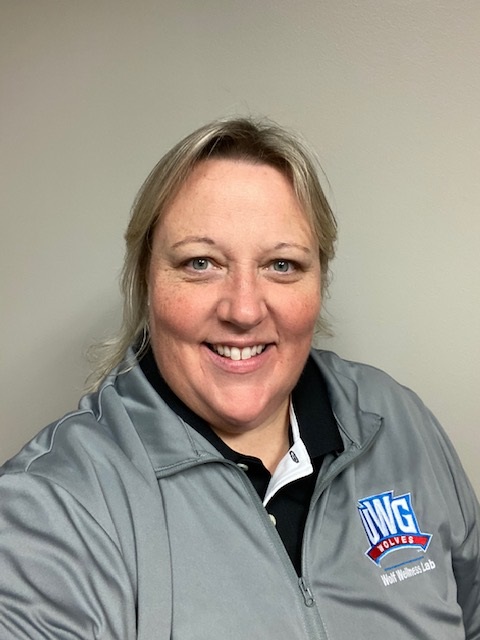To continue with the University of West Georgia’s mission of creating and maintaining a system-wide culture of wellness, UWG has named former Health and Community Wellness Program Coordinator, Bridgette Steward, as the new Chief Wellness Officer (CWO).
As an ’03 graduate school alumna of UWG, Stewart has worn many hats during her time employed at the university. In addition to her previous role as Coordinator of the Health and Community Wellness Program, she has served as Founding Director of the Wolf Wellness Lab. Steward says she has always wanted to serve in a capacity that helps people meet their wellness goals.
“My undergraduate degree is in Sports Medicine from Berry College in Rome, GA,” said Steward. “I have always had a passion for helping people live up to their full potential and achieve their goals in health and wellness. I chose that specific major because I knew I wanted to teach and work in higher education.”
The role of the Chief Wellness Officer (CWO) involves constructing, executing and maintaining leadership for UWG. Including wellness initiatives, programs and services that enhance the UWG student and employee experience. This includes improving programs such as counseling and disability services. They are also responsible for coordinating between on and off-campus resources.
Under President Brendon Kelly’s new strategic plan ‘Becoming,’ the university is working to implement a holistic, whole-person view for students. The university bases the framework of its wellness program on the National Wellness Institute’s Six Dimension Model. The six dimensions are emotional, occupational, physical, social, intellectual and spiritual. Part of the holistic model involves making sure that all departments at the university are working together.
“The Integrative Wellness Framework was called for in UWG’s Strategic Plan and outlines our collective approach to embedding wellness into organizational plans, policies, practices, work plans, and decision-making,” said Steward. “Working collaboratively across divisions and departments and in the community can substantially positively impact how our students, faculty, staff and community members live, work, learn and play.”
Steward says that part of improving university wellness is to regularly assess and identify any gaps and redundancies in services and resources.
“Institutions have made and continue to make significant investments in wellness support but often struggle to evaluate their effectiveness,” said Steward. “CWOs have ownership and influence over these investments and their resource distribution. They are expected to conduct rigorous assessments to make informed decisions on what the college or university should keep doing, what it should start doing, and what it should stop doing.”
Steward says that she hopes to improve mental health resources and outlets for students during her time as CWO. She also has plans to develop a comprehensive campus-wide food insecurity program, in addition to collaborating with the Center for Economic Education and Financial Literacy to educate both students and employees on financial wellness practices.
“We want you to leave UWG better than you found it, both professionally and personally,” said Steward. “Becoming is about what we grow to be. Wellness is about growth in all areas of your life. It is about finding your sense of purpose.”
You may also like
-
UWG PR Students Score a Georgia Power Tour at Atlanta Corporate Office
-
UWG Hosts Rapha Clinic Annual 5K Fundraiser
-
QSA Annual Drag Show Entertains Eager, Diverse Crowd
-
UWG Students represent at the 2025 AMA International Collegiate Conference in New Orleans
-
Italian Poet Shares His Love Of America Through Poetry at UWG Poetry Reading
